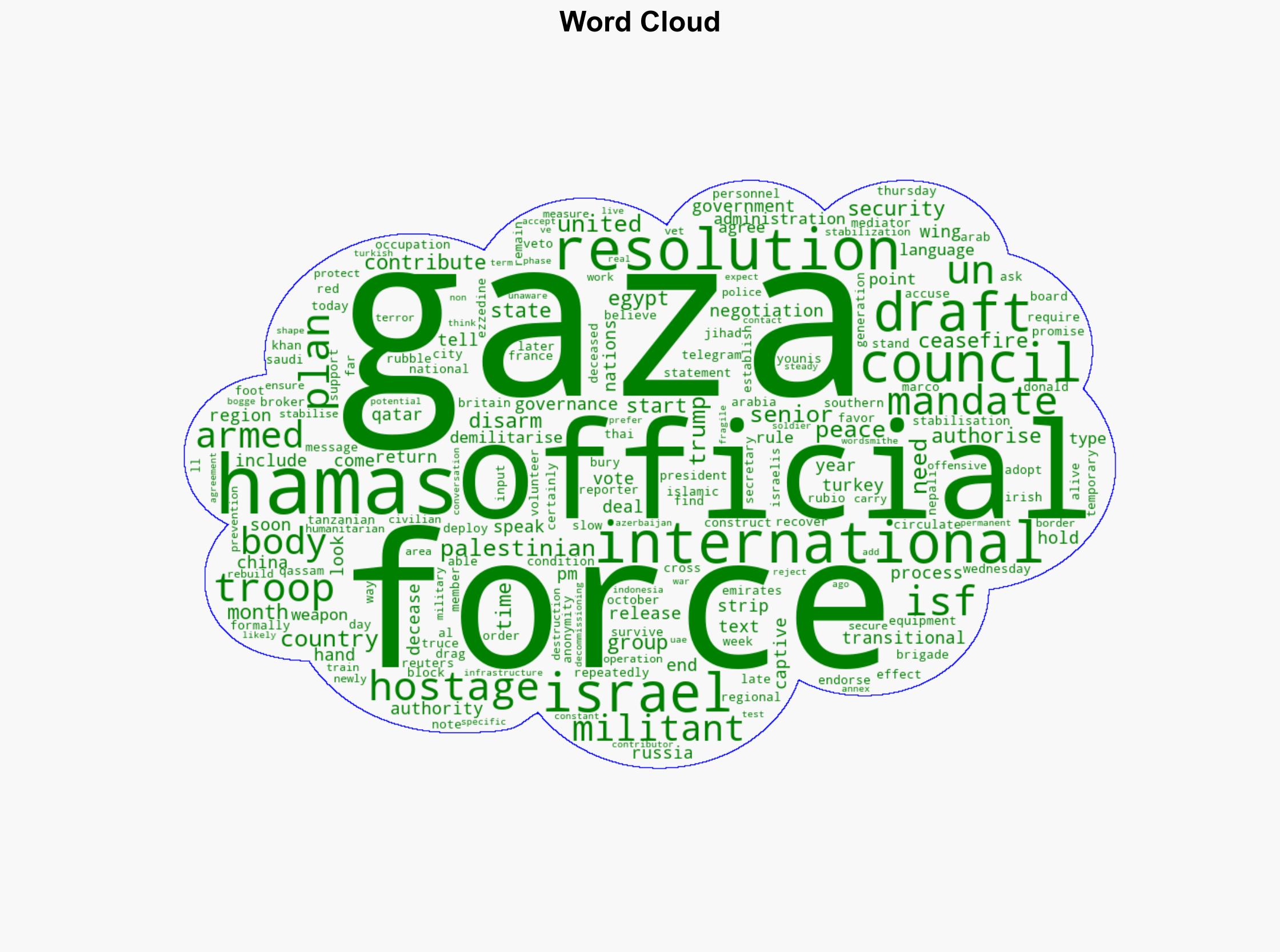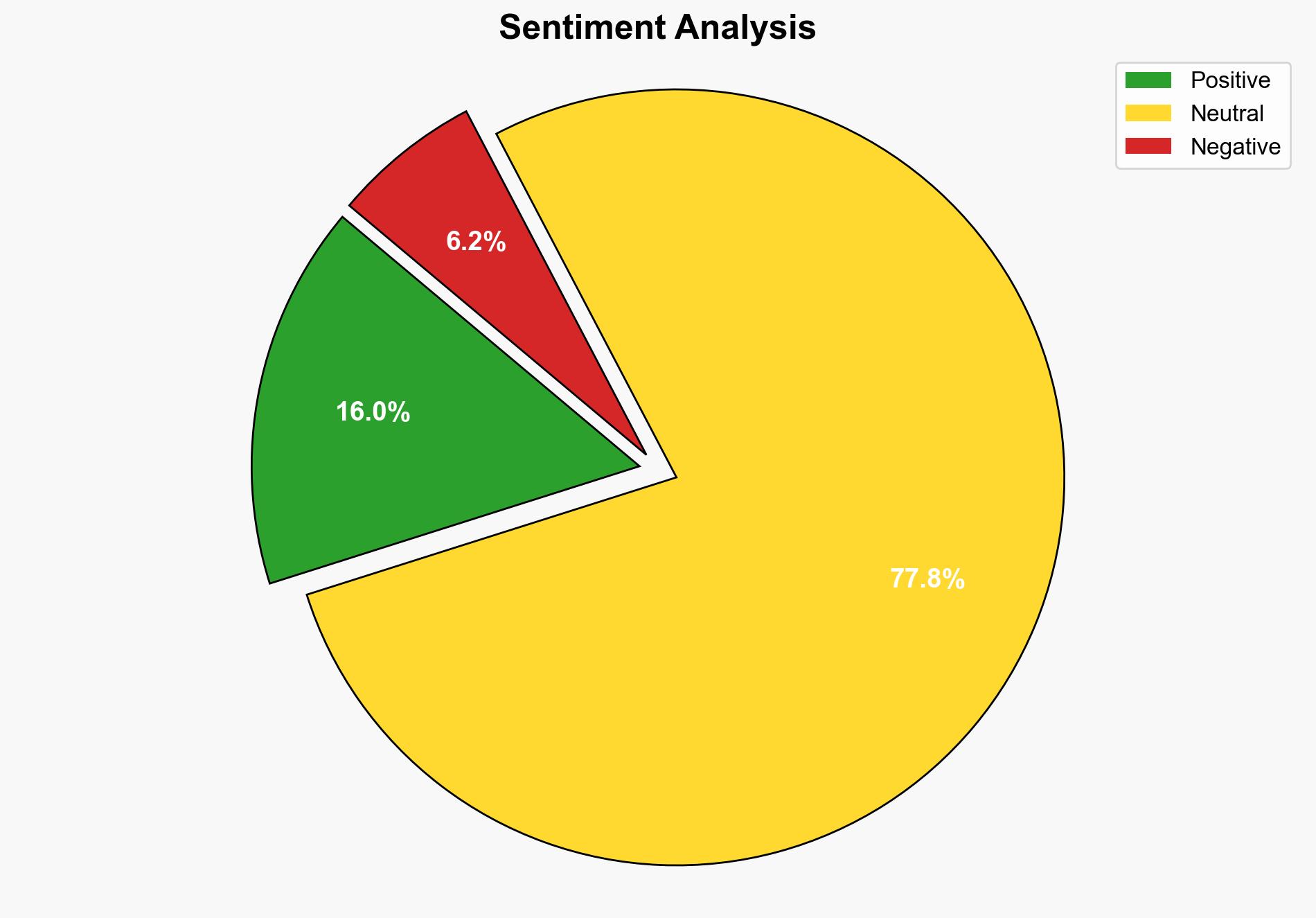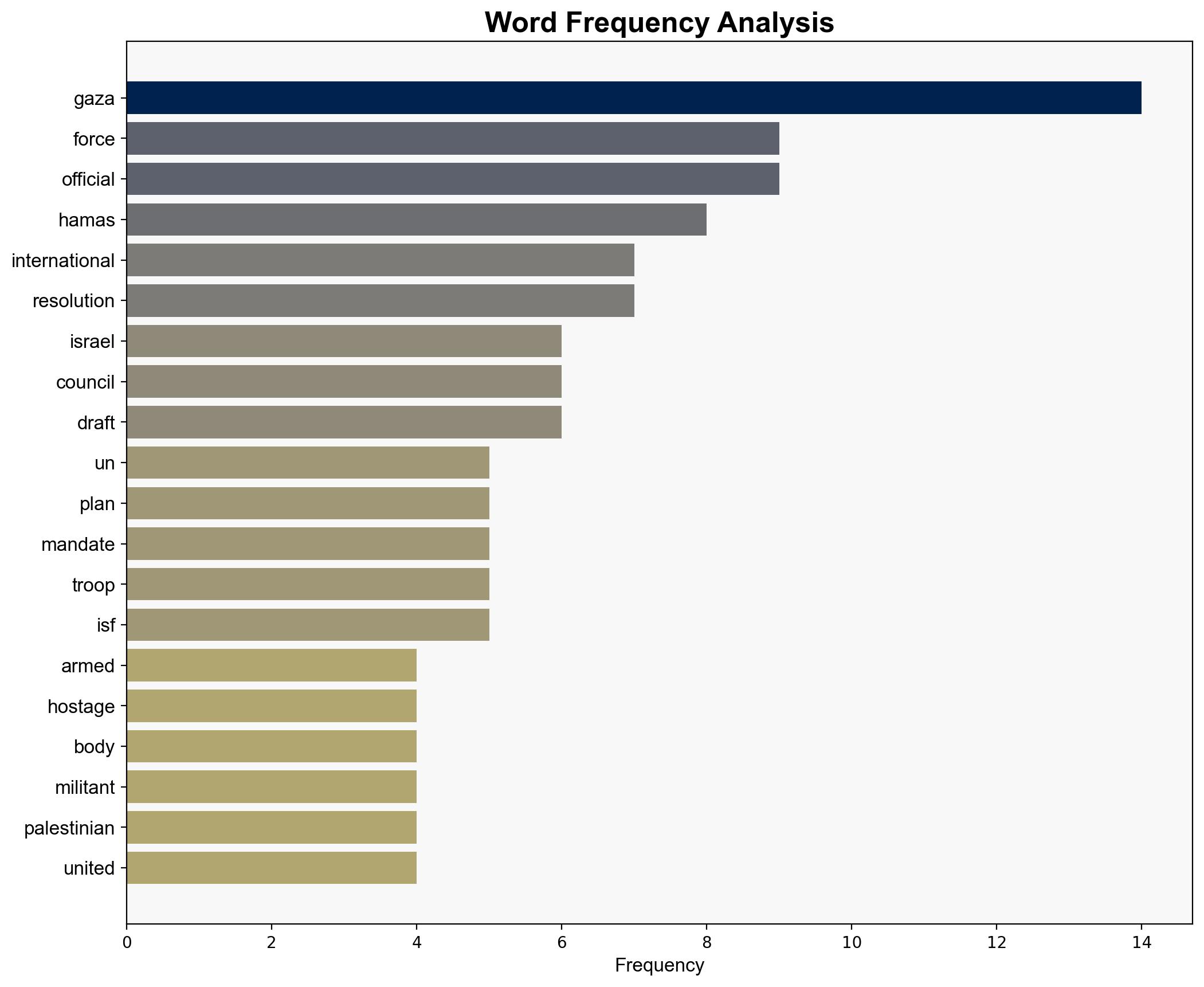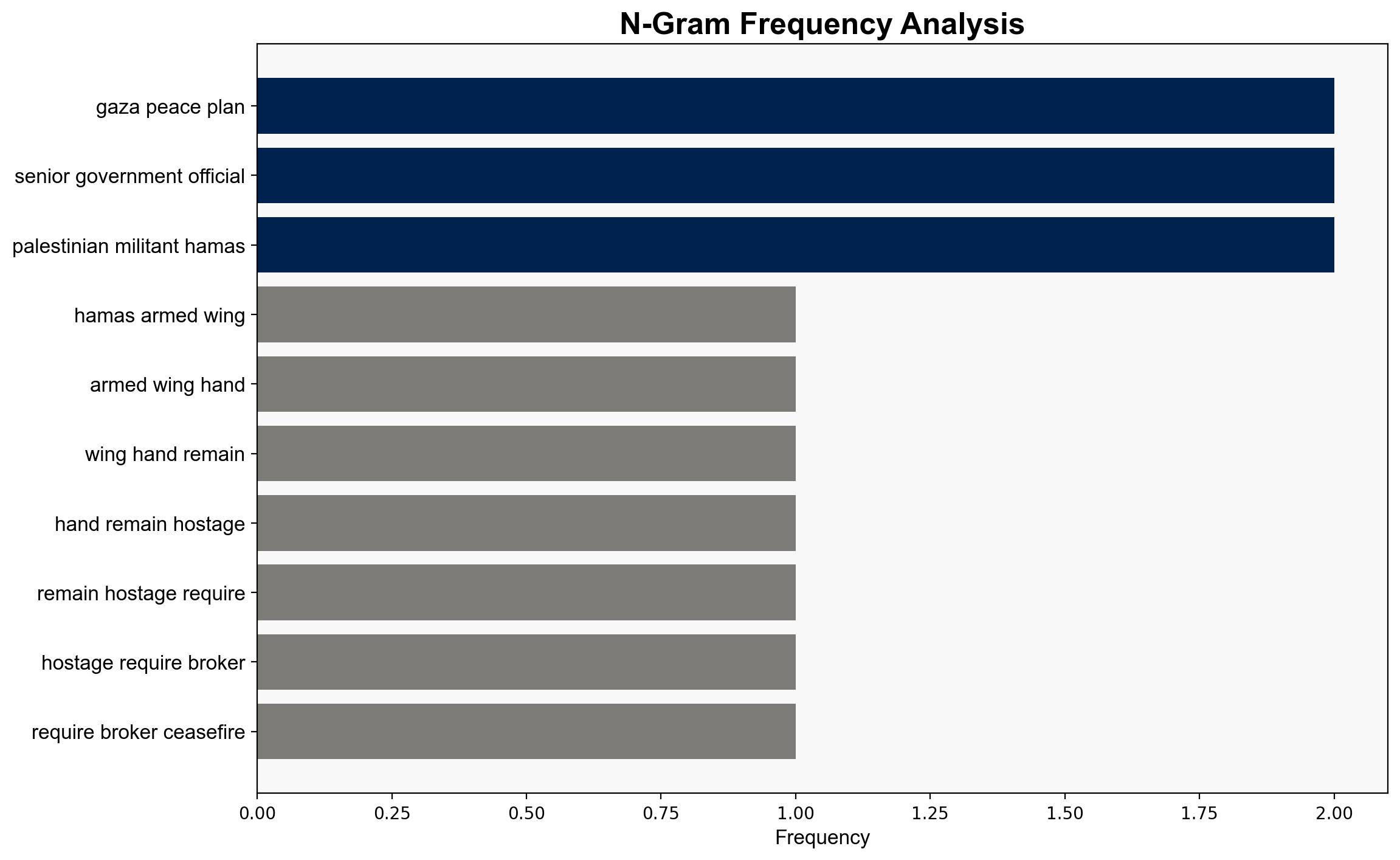UN US to start negotiations on international Gaza force – RTE
Published on: 2025-11-07
Intelligence Report: UN US to start negotiations on international Gaza force – RTE
1. BLUF (Bottom Line Up Front)
The most supported hypothesis is that the UN Security Council will face significant challenges in passing a resolution for an international stabilization force in Gaza due to geopolitical tensions and potential vetoes from key members. Confidence level: Moderate. Recommended action: Engage in diplomatic efforts to address concerns of veto-wielding nations and secure broader regional support.
2. Competing Hypotheses
1. The UN Security Council will successfully pass a resolution to deploy an international stabilization force in Gaza, supported by a broad coalition including regional powers.
2. The resolution will face significant opposition, particularly from Russia and China, leading to delays or failure in deployment due to geopolitical tensions and competing interests.
Using the Analysis of Competing Hypotheses (ACH) 2.0, the second hypothesis is better supported due to historical patterns of vetoes in the Security Council and the complex geopolitical landscape involving key players like Russia and China.
3. Key Assumptions and Red Flags
Assumptions include the willingness of regional powers to contribute troops and the ability of the UN to mediate effectively. Red flags include potential vetoes by Russia and China, historical reluctance of certain nations to engage in Middle Eastern conflicts, and the lack of clarity on troop contributions and mandate specifics.
4. Implications and Strategic Risks
Failure to pass the resolution could lead to prolonged instability in Gaza, affecting regional security and potentially escalating into broader conflicts. Economic impacts include disruptions in trade and increased humanitarian aid requirements. Geopolitical risks involve strained relations among Security Council members and regional powers.
5. Recommendations and Outlook
- Engage in proactive diplomacy with Russia and China to address their concerns and prevent a veto.
- Strengthen alliances with regional powers to ensure troop contributions and support for the resolution.
- Scenario-based projections:
- Best: Resolution passes with broad support, leading to stabilization in Gaza.
- Worst: Resolution fails, leading to increased violence and regional instability.
- Most likely: Resolution faces delays but eventually passes with compromises.
6. Key Individuals and Entities
– Donald Trump
– Marco Rubio
– Ezzedine al-Qassam Brigades
– UN Security Council members
7. Thematic Tags
national security threats, geopolitical tensions, international diplomacy, Middle East stability





